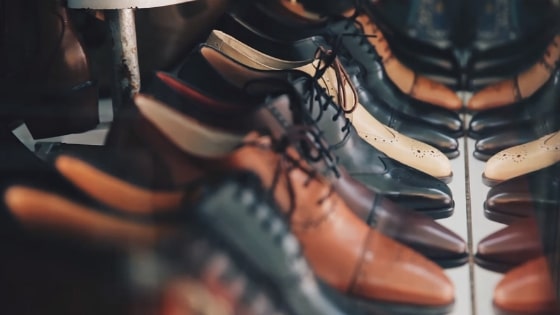
3 Reasons Why What You Wear to Work Matters
People care what you wear, no matter where you are. With only about 7 seconds to make a first impression, the way you present yourself is the easiest way for others to have some idea of who you are. Paying attention to the little details of what you wear to work can make a huge difference in terms of how others think about you. Here are three reasons why you should care what you wear, too.
Feb 13, 2019
7 min read
Dress for the job you want.
You’ve probably heard this a million times before: dress for the job you want. Usually you’re given this piece of advice when you’re applying for a new job or speaking with management about a promotion at your current company. You’ll arrive for the interview in an outfit you planned out ahead of time that is neat, crisp, and something you would never wear on an average day. Once you’ve secured the job, depending on your workplace’s dress code, you eventually go back to dressing the way you do when you don’t feel the need to be impressive. But people, especially bosses and coworkers, care what you wear each day. Here are three reasons you should step up your style.

People judge a book by its cover.
That’s another classic cliche: you should never judge a book by its cover because you don’t know what you’ll find in the pages. While that’s true to an extent, what you wear says a lot about who you are, what you value, and even what your career is. Many people take it as a token of respect. Dressing well for your coworkers shows them you think highly of them. Research into how we perceive others based on clothing has shown that you can tell a lot about a person just by looking at a picture of their shoes. When you have 7 seconds — and some studies have shortened that to 1/10 of a single second — to make a first impression, your appearance is doing the heavy lifting for you.
The big thing to remember is to keep your clothes neat, wrinkle and stain free, and well-fitting. Even more casual clothes can look high-end if they’re smooth and sharp. Look at what your boss wears to work as an example. Overdressing can make you look unaware, but underdressing can make you come off as lazy or rude.
No matter how formal or laid back your workplace is, the big thing to remember is to always look like a professional. If you work in an office setting, keep in mind what’s appropriate. Clean clothing that adheres to the dress code and the time of year is your best bet.
But what if you don’t work in an office? You could be working in retail, service, or other positions that require a certain uniform. That should make it easier, right? Not necessarily! The same concepts apply, though. If you have a work uniform, make sure it’s neat, fits well, and adheres to your workplace policies. If they require you to wear safety gear, an apron, or to tie your hair back or keep it covered, do that.
While you may want to defy some rules, and changing something up in your uniform seems harmless enough, little things like that could hurt your chances of being taken seriously by management. Even further, if you aren’t following uniform regulations that are in place because of safety, you or a coworker could get hurt.
You want people to notice the hard work you do, not your outfit. Trust us, even if your coworkers don’t say anything to you about unprofessional attire, they ARE talking about it.

Your clothes can positively affect your performance at work.
The opposite is true, as well. Think about it: when you take a few extra minutes getting ready in the morning or wear a new outfit you’re excited about, you stand a little taller. That confidence can then fuel your entire work day. Additionally, your coworkers and company leaders will see that confidence, which can be in your favor when it comes time for raises and promotions.
If you’re wearing clothing you’re not comfortable in, clothing that’s sloppy, or just isn’t “you,” you’re not going to feel good about yourself and your boss will see that, too. Instead of trying to be someone else by wearing traditional business attire that you’re not comfortable in, adapt your personal style to be appropriate for your workplace. Dressing well isn’t wearing the best or most expensive clothes. It doesn’t mean being up to date with the latest trends. That is, unless that’s what it means to you.
Dress for who you want to be.
People care what you wear, from the hiring manager who might offer you a job to the person you pass walking home after a long day. Dress for the job you want on work days. While advancing your career is a priority, building your self-esteem and working to be happy with yourself is vital to success. If you’re not confident in yourself, how can anyone else be?
Consider what makes you feel like the best version of yourself. Does a blazer make you feel in charge? Do soft sweaters help you feel calm and sure of yourself? Once you have an idea of who you want to be or how you want others to perceive you, you can build up your confidence and your work wardrobe at the same time.

Boost your skills and confidence with Penn Foster.
While you’re perfecting your work appropriate wardrobe to help build confidence in yourself, you can work toward becoming career confident, too! With Penn Foster’s online Career Readiness Bootcamp certificate, you can learn about becoming a leader and refresh the soft skills that hiring managers often look for. Questions? Our Admissions Specialists can help! Give them a call at 1.800.275.4410!



